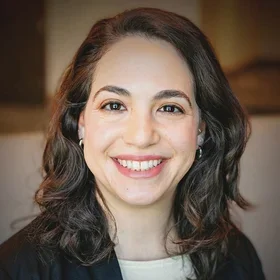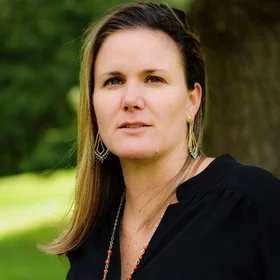To make a career pivot from supply chain and finance, Sagar Bohra enrolled in the Columbia University School of Professional Studies M.S. in Human Capital Management (HCM) program in 2021. His objective while at Columbia: Add skills to his portfolio and refine his long-term career goals.
After earning his master’s, Sagar joined West Monroe consulting in New York City, primarily focusing on mergers and acquisitions, human resources transformation, and organizational development. He spoke with student writer Huiru Guo (’22SPS, Strategic Communication) about how the HCM program impacted his career. Excerpts from the interview follow.
What attracted you to Columbia’s Human Capital Management program?
The holistic and strategic approach to solving organization and talent challenges while focusing on the various COEs (Centers of Excellence) of HR. It's the only program I explored that had the appropriate balance of analytics, business strategy, and subject matter depth. I also loved the flexibility of the program as I started as a full-time student and had the opportunity to complete an internship with SPS in recruitment/applications, then switched to part-time after pivoting to an HCM management consulting role.
Did your time at Columbia help you to refine your career goals? If yes, how so?
I came into the HCM program intentionally with specific goals and expectations as I was pivoting from a supply chain and finance background. I was able to further refine my career goals through the program by leveraging the Career Design Lab and faculty network. I learned more about Ph.D. opportunities and niche areas of HCM that align with my long-term goals, which has helped me adjust my ten-year professional goals and determine what skill sets and experiences I need to develop to achieve them.
What’s the most powerful lesson or strategy that you learned from the HCM program? How do you apply it in your career?
One of the most powerful lessons I learned from the Columbia HCM program is embedding a learning mindset into every initiative and strategy that is implemented in a business. Additionally, no true strategy can be executed without quantitative support. And for HR professionals, this means being able to tie decisions to financial data and metrics that are meaningful to business outcomes.
How did you connect with fellow students, faculty, and guest lecturers?
The bond between myself and fellow students, faculty, and guest lecturers was positive and dynamic. I was able to meet my HCM community both in person and online, and engage offline to build upon those relationships. I am able to share best practices and leverage my network in my current role, and I love coming back to the HCM program for events, guest speaker opportunities, and more!
Any advice for professionals seeking to break into HR consulting?
The most critical piece of advice: You don’t need all the answers to make good decisions; you simply need the curiosity to search for information and the ability to manage ambiguity. Business decisions are an art of mixing facts, logic, ethics, and assumptions. In HCM consulting, every decision we make will impact our clients and their workforce. So we must approach problem-solving from an objective, skeptical, moral, and analytical mindset—while knowing we may not have 100 percent of the data. Mastering this art and approach is what differentiates great consultants from exceptional advisers.
Tell us about your role as a management consultant.
At West Monroe, I focus on human capital management to enable people-centered change—and better align workforce practices with strategic business priorities. For instance: increase the value created by HR through projects focused on mergers and acquisitions, organizational transformation, operating model design, HR technology strategy, and talent and retention strategy.
What excites you about consulting in the HCM space?
The rapid pace at which technology and preferences are changing how businesses must approach their organizational and people strategies. HCM consulting allows me to stay technology/vendor agnostic and advise C-suite stakeholders on how to unlock value-creation opportunities in HR that impact the overall success of their business.
Columbia University’s M.S. in Human Capital Management program prepares graduates to be world-class HCM strategists able to address changing needs in building and motivating talented, engaged workforces in the private, public, academic, and not-for-profit sectors. The 36-credit program is available in part-time, full-time, on-campus, and online formats. The part-time degree can up to six terms to complete and the full-time degree can take up to three terms to complete.
Fall 2023 application deadlines for the M.S. in Human Capital Management program are February 15, 2023, for the priority deadline; March 15 for applicants with international documents; and June 15 for the final deadline. Learn more here.


